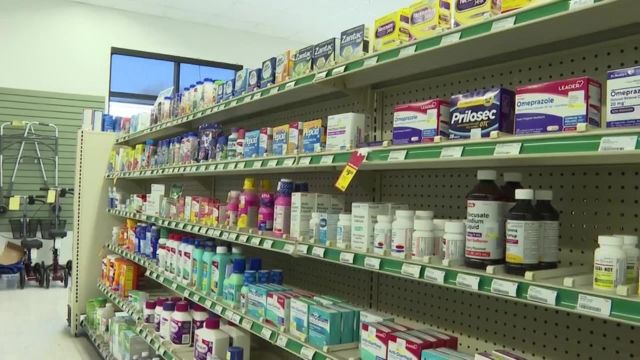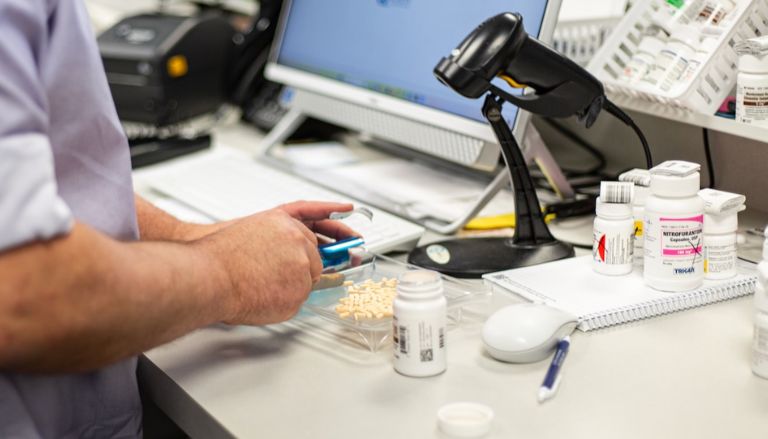COLUMBIA — Missouri has just made changes to the rules about getting prescriptions through the mail. Some people who care about safety say more needs to be done to protect patients and their families, even though many see it as a step in the right direction.
The Missouri Board of Pharmacy made new rules that say pharmacies must have written standards on medications that are sent by mail.
William Morrissey, a partner at Kilgore’s Pharmacy in Columbia, said, “The Board is trying to make it clear that people who mail drugs need to be responsible about that.” “And take care of their patients and keep their best interests in mind.”
Medication that is exposed to high or low temperatures may not work as well, which can put patients at risk.
From St. Francois County, Loretta Boesing said that her son’s life was in danger because of medicine that was being shipped in very high temperatures.
The leader of Unite for Safe Medications is Boesing, who lives in Park Hills. When he was two years old, Boesing’s son Wesley needed a second liver.
Boesing said that her son needs to take medicine every 12 hours in order to stay alive. After taking medicine that was shipped in a bag in 102-degree heat, Wesley’s body began to reject the donation. Boesing had to take her son to the hospital once more.
“We had to go through that fear of losing him a second time,” said Boesing.
The nurses at first thought Wesley needed a different drug. It was the same medicine he took at home, though, and Boesing said he was fine. She thinks that the life-saving medicine, which was shipped in just a bag, got ruined by the heat.
A lot of delivery cars don’t keep things at the right temperature. NBC News says that federal inspectors have found heat indexes of 126 degrees in the back of trucks. Morrissey said that temperature isn’t always a problem for all medicines. But it can be for special medicines like the one Boesing’s son takes. Morrissey said that both very cold and very hot temperatures can hurt some medicines.
“Chemicals, pharmaceuticals, that sort of thing will break down over time,” he said. “Just like a chemical reaction, heat can sometimes speed that up.”
Under the new rules, pharmacies must have written policies and processes for shipping medications and letting patients know when they are being shipped or delivered. Including sending medicines in “proper packaging.”
The rules also say that there needs to be a written plan for what to do if it seems like a “temperature excursion” damaged medicine. The pharmacy board says that’s any change from the manufacturer’s temperature guidelines or acceptable levels of variation.
The board said that business standards should be used if there isn’t a written policy. Under the new rules, there must also be advice for patients on how to tell if their medicine is damaged because of the temperature.
As of Dec. 30, the new rules say that pharmacies must also give the Missouri Pharmacy Board’s contact details. Missouri pharmacists are regulated by the board.

Morrissey said that Kilgore’s Pharmacy already had rules like that in place. The board already has a rule that says drugs should be shipped according to standards set by the Federal Drug Administration or the U.S. Pharmacopeia, Boesing said. A non-profit group called U.S. Pharmacopeia helps set guidelines for medicines.
“The Board of Pharmacy’s new rule, the only thing it really does, is require policies and procedures showing that they’re meeting that regulation,” said Boesing. “That should have already been there.”
Boesing said the problem is with big mail-order shops that do business all over the country. Pharmacy benefit managers, or PBMs, own a lot of these businesses. PBMs are supposed to get customers the best deals on medicines, at least in theory.
But an investigation by The New York Times shows that PBMs often do the opposite. They push patients toward more expensive drugs and shut down neighborhood drug stores. Boesing said that these companies regularly break FDA rules about how to ship medicines properly.
Boesing said that her son’s medicine is now delivered by a local independent pharmacy in a truck that keeps the medicine at the right temperature. She said that she was glad the board was doing something, but she hoped it would do more in the future.
“As a mom, I want to know when I get my son’s medications, or when other patients are getting their medications by mail, they’ve been properly stored,” said Boesing.




Leave a Comment